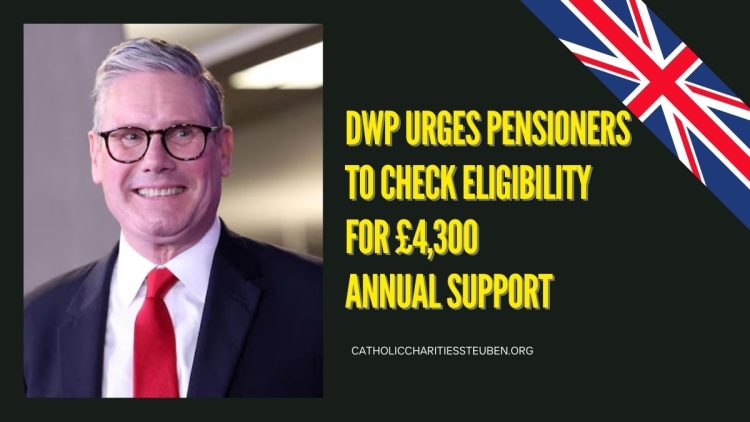Certain older couples may qualify for up to an extra £4,300 annually in support. If their combined income is below £346 per week, they could be eligible for Pension Credit.
Overview of Pension Credit
Pension Credit is a means-tested benefit that currently helps approximately 1.4 million older individuals in Great Britain. In the 2025/26 financial year, eligible individuals can receive up to £4,300 in additional financial support.
Despite this, it has been reported that around 760,000 pensioners are eligible for the State Pension top-up but have not yet claimed it. To address this, the Department for Work and Pensions (DWP) is running an ongoing awareness campaign, urging pensioners to check if they qualify and submit a claim.
Who Is Eligible for Pension Credit?
Married pensioners with a combined income of less than £346 per week or single pensioners earning below £227.10 per week may qualify for Pension Credit.
However, some older individuals believe that having savings or owning a home disqualifies them, but that’s not the case. Pension Credit also offers access to assistance with housing costs, heating bills, and council tax.
A Small Award Unlocks Bigger Benefits
Receiving even £1 per week can help you access other forms of support. The DWP recently confirmed that almost 78% of new claims for Pension Credit are processed within the target of 50 working days (around 10 weeks).
This means that if you apply for Pension Credit this month, you could receive your first payment and any backdated arrears by July.
What Is Included in the Pension Credit?
When applying for Pension Credit, the DWP will assess your income. If you live with a partner, their income will be included in the assessment.
Pension Credit can increase:
- Your weekly income to £227.10 if you are single.
- Your joint weekly income to £346.60 if you live with a partner.
Even if your income exceeds these thresholds, you might still be eligible for Pension Credit if:
- You have a disability.
- You provide care for someone.
- You have savings or housing costs.
What Counts as Income?
Your income includes:
- State Pension.
- Other pensions.
- Earnings from employment or self-employment.
- Most social security benefits, such as Carer’s Allowance.
However, not all benefits are counted as income. These include:
- Adult Disability Payment.
- Attendance Allowance.
- DWP Christmas Bonus.
- Child Benefit.
- Disability Living Allowance.
- Pension Age Disability Payment.
- Personal Independence Payment.
- Social fund payments, such as Winter Fuel Allowance.
- Housing Benefit.
- Council Tax Reduction.
- Your savings.
Impact of Savings on Pension Credit
If your total savings and investments amount to £10,000 or less, they will not affect your eligibility for Pension Credit.
However, if you have more than £10,000, every £500 over this amount will be considered as £1 of income per week.
Pension Credit Income Limits
| Status | Weekly Income Limit |
|---|---|
| Single | £227.10 |
| Married/Partnered | £346.60 |
It is essential for older individuals, whether single or married, to check if they are eligible for Pension Credit.
Claiming this benefit can provide vital financial assistance, especially in the face of the ongoing cost of living challenges.
FAQs
What is the eligibility requirement for Pension Credit?
To qualify, single pensioners must have an income of less than £227.10 per week, while married pensioners need a combined income below £346 per week.
How long does it take to process a Pension Credit claim?
The DWP processes nearly 78% of new claims within 50 working days, which is approximately 10 weeks.
Will having savings affect my eligibility for Pension Credit?
If your savings total £10,000 or less, they won’t affect your eligibility. However, savings over this amount will count as income for Pension Credit purposes.

